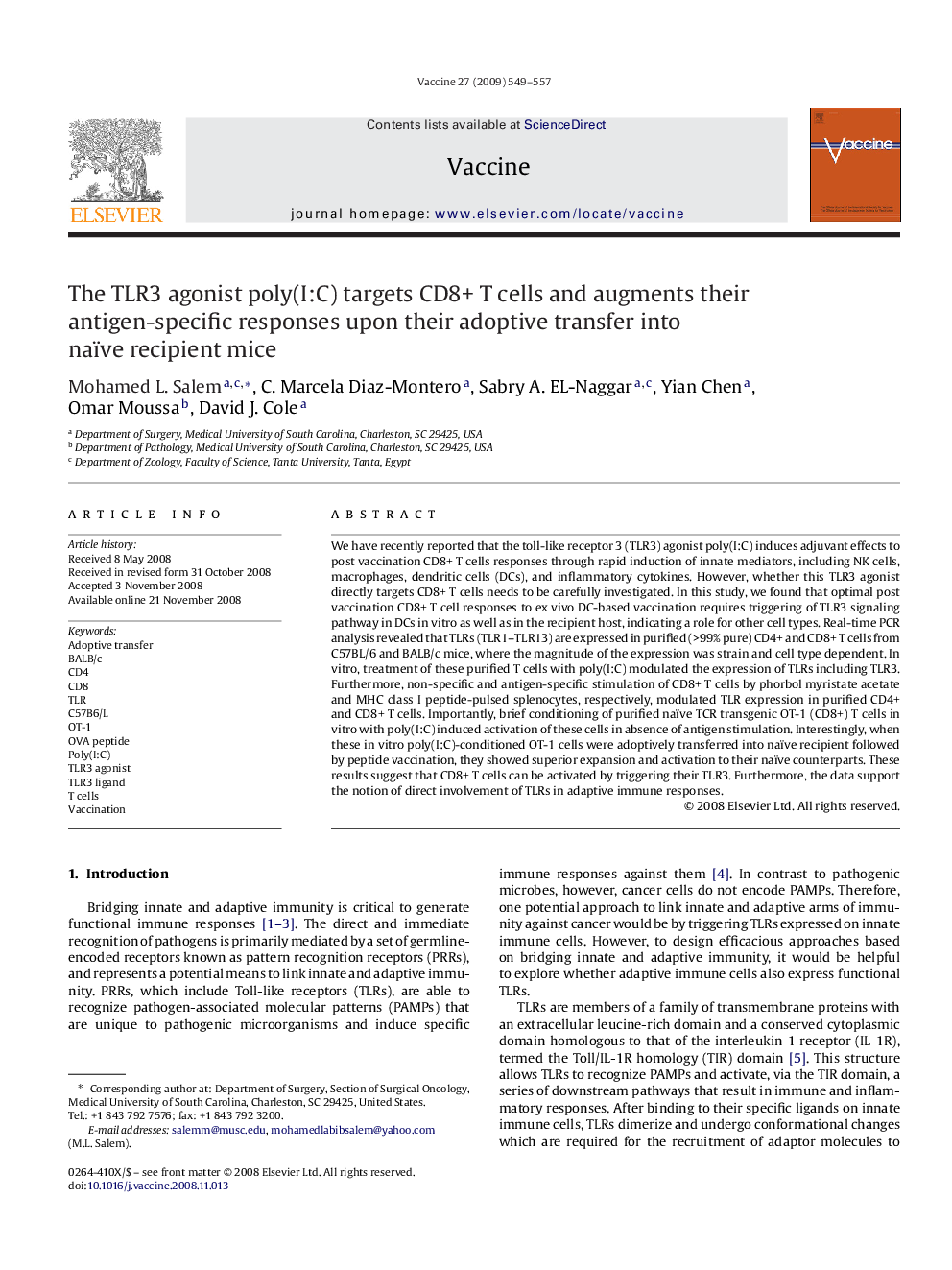| Article ID | Journal | Published Year | Pages | File Type |
|---|---|---|---|---|
| 2405489 | Vaccine | 2009 | 9 Pages |
We have recently reported that the toll-like receptor 3 (TLR3) agonist poly(I:C) induces adjuvant effects to post vaccination CD8+ T cells responses through rapid induction of innate mediators, including NK cells, macrophages, dendritic cells (DCs), and inflammatory cytokines. However, whether this TLR3 agonist directly targets CD8+ T cells needs to be carefully investigated. In this study, we found that optimal post vaccination CD8+ T cell responses to ex vivo DC-based vaccination requires triggering of TLR3 signaling pathway in DCs in vitro as well as in the recipient host, indicating a role for other cell types. Real-time PCR analysis revealed that TLRs (TLR1–TLR13) are expressed in purified (>99% pure) CD4+ and CD8+ T cells from C57BL/6 and BALB/c mice, where the magnitude of the expression was strain and cell type dependent. In vitro, treatment of these purified T cells with poly(I:C) modulated the expression of TLRs including TLR3. Furthermore, non-specific and antigen-specific stimulation of CD8+ T cells by phorbol myristate acetate and MHC class I peptide-pulsed splenocytes, respectively, modulated TLR expression in purified CD4+ and CD8+ T cells. Importantly, brief conditioning of purified naïve TCR transgenic OT-1 (CD8+) T cells in vitro with poly(I:C) induced activation of these cells in absence of antigen stimulation. Interestingly, when these in vitro poly(I:C)-conditioned OT-1 cells were adoptively transferred into naïve recipient followed by peptide vaccination, they showed superior expansion and activation to their naïve counterparts. These results suggest that CD8+ T cells can be activated by triggering their TLR3. Furthermore, the data support the notion of direct involvement of TLRs in adaptive immune responses.
